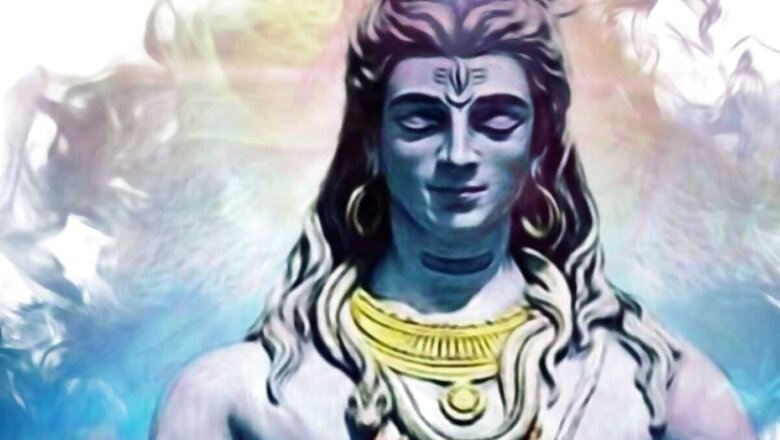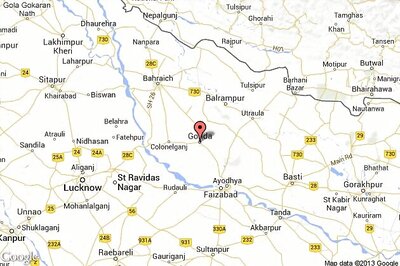
views
Having been a Western Shaivite and Shakta for a few decades and a former Catholic, complete with my silly white man trishula and Kali tattoos, I have regularly been asked by non-Hindu family, friends, and random strangers why I worship destroyer deities. I have even been asked why I worship demons. I do not blame Abrahamic dualists for their concerns, as these are simply byproducts of their religious upbringing and monocultural conditioning. Since I have been both a Christian and an adherent of Vedic darshana, I view these inquiries as an opportunity to educate and open the minds of whoever may truly be interested in hearing from a Dharmika, rather than from their priest or pastor. Non-Hindus and Hindus alike are not immune to being conditioned to the ‘this is all good and that is all bad’ perception. The following is how I tend to explain these matters to those who may be caught up in dualistic thinking.
The Hindu deity Shiva is known as the destroyer. Some in the West and the East for that matter, misunderstand this out of ignorance and sometimes, bigotry. What is needed today is comprehension and compassion. We all must at least begin to see beyond the illusions of separation. We must be able to wrap our heads around allegory and find union in notions and attitudes which seem to be at odds, but ultimately complement one another.
The Abrahamic deity is most often seen simply as the creator. This deity killed over 300 million people as per the Old Testament, sent and continues to send the majority of people to an eternal hell at the time of their deaths, and flooded the Earth. So this deity is himself quite destructive out of vice.
Hindus have a destroyer god who destroys not arbitrarily or out of spite but out of necessity. It’s only logical. Creation cannot stand on its own in any aspect of life. There is always creation, preservation and transformation. There is always the past, present, and future. This is true on a cellular, ecological, and cosmological level.
We must consume food in order to survive. Food is created. We must ingest food matter. It must be assimilated for its nutrients to be preserved in our tissues. What is not assimilated must be eliminated. Even every cell of our body is in time, a new regenerated cell. Without ingestion, we starve. If we cannot assimilate food, we become emancipated and die. If we cannot eliminate it, we become toxic and die. What we call ‘waste’ has its purpose. It breaks down back into the elements where the food cycle begins again. There is no structure without a function.
So, destruction is an important part of creation. Hindus believe all of creation is an extension and reflection of Brahmaan. So ‘God’ in Hinduism is Creator, Sustainer and Transformer. G = Generator, O = Operator, D = Destroyer. It’s just a Good Orderly Direction.
The word ‘destroyer’ is a bit of a misnomer. In the West, it has negative connotations and of course, anything with a negative connotation that is associated with the divine is misunderstood as being backwards, demonic, or dangerous.
Some adherents of the Abrahamic faiths like to say Shiva and Kali must be some sort of devils, because they are referred to as the God and Goddess of destruction and because they carry a trishula or trident. The Bible and the Quran offer little to no description of what demons look like. Some people have simply seen too many cartoons. When they see a depiction of Kali Maa or Bhairava, they tend to become frightened. Many Hindus too might be, in a sense, terrified.
Certainly, Kali and Bhairava worship is something quite serious. Ultimately, however, we know that Kali is as kind as time (kaal/kala) which heals all wounds. Bhairava is the annihilator of fear, greed, lust, and anger. He is not simply a ‘destroyer’ but at the same time, a restorer. Of course, as devotees, we know that Shiva is the most kind, compassionate and thoughtful deity, as his name implies. ‘Siva’ means kind, benevolent, benign, and gracious.
Referring to Mahadeva simply as a ‘destroyer’ is limiting. A more appropriate word may be ‘transcend-er’. Nothing is ever destroyed completely. Matter breaks down into energy. Energy can only be transformed, not destroyed. To the Shiva/Shaktas, Shiva is the creator, preserver, and destroyer. Other sampradayas do not agree. No matter. Hindus should know that religion is not a competition. There exists Harihara, a deity known more in ancient times than today, who is both Shiva and Vishnu. So, no real need to reconcile Shaivism and Vaishnavism.
At the end of the day, destruction breeds creation. We can see in Hindu philosophies some talk of karma and reincarnation. Some are deistic and others are non-theistic. We can see the functions of tri-dev (Brahma, Vishnu, Shiva) in both the spiritual and material worlds, and we can see the same in what the Hindu sages have said on the topic of karma and reincarnation.
As many ways as action can take place, is karma in one form or another. Every action has a certain reaction no matter if we understand it or not. No matter our particular belief system. Every cause has an effect. This is true with astronomy, physics, biology, psychology and neuroscience.
Reincarnation? All of nature is a part of an observable cycle that returns to itself upon its death where growth begins again. We are a part of that nature and growth.
Sean Bradrick is an American Sanatani & Yogi. Author of the soon-to-be-released book, ‘A Hindu’s Guide to Advocacy and Activism’. Views expressed in the above piece are personal and solely that of the author. They do not necessarily reflect News18’s views.
















Comments
0 comment